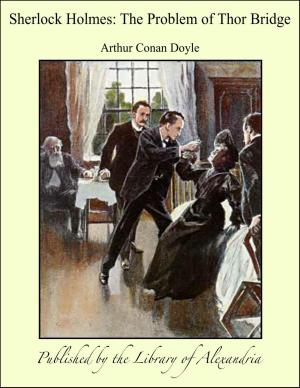The Portsmouth Road and Its Tributaries To-Day and in Days of Old
Nonfiction, Religion & Spirituality, New Age, History, Fiction & Literature| Author: | Charles G. Harper | ISBN: | 9781465523532 |
| Publisher: | Library of Alexandria | Publication: | March 8, 2015 |
| Imprint: | Language: | English |
| Author: | Charles G. Harper |
| ISBN: | 9781465523532 |
| Publisher: | Library of Alexandria |
| Publication: | March 8, 2015 |
| Imprint: | |
| Language: | English |
There has been of late years a remarkable and widespread revival of interest in the old coach-roads of England; a revival chiefly owing to the modern amateur’s enthusiasm for coaching; partly due to the healthy sport and pastime of cycling, that brings so many afield from populous cities who would Otherwise grow stunted in body and dull of brain; and in degree owing to the contemplative spirit that takes delight in scenes of by-gone commerce and activity, prosaic enough, to the most of them that lived in the Coaching Age, but now become hallowed by mere lapse of years and the supersession of horse-flesh by steam-power. The Story of the Roads belongs now to History, and History is, to your thoughtful man, quite as interesting as the best of novels. Sixty years ago the Story of the Roads was brought to an end, and at that time (so unheeded is the romance of every-day life) it seemed a story of the most commonplace type, not worthy the telling. But we have gained what was of necessity denied our fathers and grandfathers in this matter—the charm of Historical Perspective, that lends a saving grace to experiences of the most ordinary description, and to happenings the most untoward. Our forebears travelled the roads from necessity, and saw nothing save unromantic discomforts in their journeyings to and fro. We who read the records of their times are apt to lament their passing, and to wish the leisured life and not a few of the usages of our grandfathers back again. The wish is vain, but natural, for it is a characteristic of every succeeding generation to look back lovingly on times past, and in the retrospect to see in roseate colours what was dull and, neutral-tinted to folk who lived their lives in those by-gone days. If we only could pierce to the thought of æons past, perhaps we should find the men of the Stone Age regretting the times of the Arboreal Ancestor, and should discover that distant relative, while swinging by his prehensile tail from the branches of some forest tree, lamenting the careless, irresponsible life of his remote forebear, the Primitive Pre-atomic Globule. However that may be, certain it is that when our day is done, when Steam shall have been dethroned and natural forces of which we know nothing have revolutionized the lives of our descendants, those heirs of all the ages will look back regretfully upon this Era of ours, and wistfully meditate upon the romantic life we led towards the end of the nineteenth century
There has been of late years a remarkable and widespread revival of interest in the old coach-roads of England; a revival chiefly owing to the modern amateur’s enthusiasm for coaching; partly due to the healthy sport and pastime of cycling, that brings so many afield from populous cities who would Otherwise grow stunted in body and dull of brain; and in degree owing to the contemplative spirit that takes delight in scenes of by-gone commerce and activity, prosaic enough, to the most of them that lived in the Coaching Age, but now become hallowed by mere lapse of years and the supersession of horse-flesh by steam-power. The Story of the Roads belongs now to History, and History is, to your thoughtful man, quite as interesting as the best of novels. Sixty years ago the Story of the Roads was brought to an end, and at that time (so unheeded is the romance of every-day life) it seemed a story of the most commonplace type, not worthy the telling. But we have gained what was of necessity denied our fathers and grandfathers in this matter—the charm of Historical Perspective, that lends a saving grace to experiences of the most ordinary description, and to happenings the most untoward. Our forebears travelled the roads from necessity, and saw nothing save unromantic discomforts in their journeyings to and fro. We who read the records of their times are apt to lament their passing, and to wish the leisured life and not a few of the usages of our grandfathers back again. The wish is vain, but natural, for it is a characteristic of every succeeding generation to look back lovingly on times past, and in the retrospect to see in roseate colours what was dull and, neutral-tinted to folk who lived their lives in those by-gone days. If we only could pierce to the thought of æons past, perhaps we should find the men of the Stone Age regretting the times of the Arboreal Ancestor, and should discover that distant relative, while swinging by his prehensile tail from the branches of some forest tree, lamenting the careless, irresponsible life of his remote forebear, the Primitive Pre-atomic Globule. However that may be, certain it is that when our day is done, when Steam shall have been dethroned and natural forces of which we know nothing have revolutionized the lives of our descendants, those heirs of all the ages will look back regretfully upon this Era of ours, and wistfully meditate upon the romantic life we led towards the end of the nineteenth century















